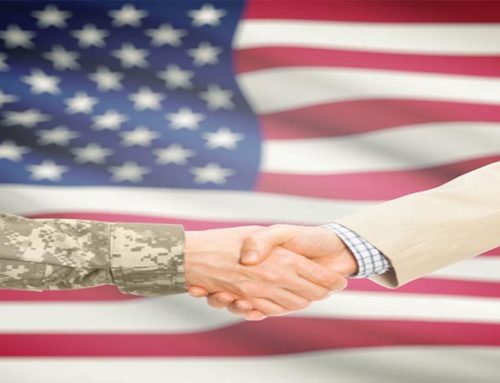Make yourself competitive first, then blow them away because you are a veteran. Lately a few folks have asked me how did I successfully transition from active duty to the civilian sector and being in a place where I am genuinely happy. I could write a novel on the journey but thought to simply come up with a brief list of lessons learned as I find it most engaging for those folks with the short attention span I have. This list is compiled from circumstances I have seen and heard. I in no way pretend to have all the answers but if I can help just a couple of my brothers and sisters in their journey then it is worth putting it out there.
1. Being a veteran is a great and noble thing but entitles you to nothing. There are far too many vets with a sense of entitlement. America loves you and respects you for your sacrifices and commitment. Put the work in to be competitive in the job market regardless of your veteran status then show them how truly awesome veterans are and make us proud.
2. I have spent a good bit of time in school. You should also. If you are not an academic, get smart and certified in something that interests you like coding, web design, mechanics or whatever you are passionate about. Create a tangible brand with the credentials to match your experience. Be a well rounded professional.
3. After connecting with folks in business, I learned one irrefutable truth to success and building real relationships…pause for effect…”Don’t be a jerk”. You don’t have to or won’t get along with all who cross your path but when people speak of you, be mindful of the image you portray. A dark callus shadow is hard to get away from. If you say something good or bad about someone trust that the person you speak of WILL find out.
4. Work on your poise and polish. Serving downrange, stuck in a foxhole or standing late-night watches may be a casual and great way to pass the time but using colorful language, sea-stories or culturally shocking topics can easily alienate folks in professional environments.
5. The best advice I ever got from a mentor was told to me when I first moved to Chicago. A mentor said “In all you do, every single time you volunteer for something, make it amazing. Really give your all and make the organization better than when you got there. Also, don’t worry about who is looking or trying to impress people. Usually the folks you are trying to impress are not the ones who will call you up and offer you an opportunity based on your efforts anyway. It is almost always someone who heard about you or saw what you did to help others.”
6. Build real relationships. Don’t just call folks when you want something. This is a sure fire way to get yourself labeled as an opportunist. You don’t have to know their whole life history but key things like marital status, number of kids or a hobby in common goes a long way to prove you actually care about the relationship.
As I learn more by making more mistakes I hope to share with my veteran family.





Leave A Comment
You must be logged in to post a comment.